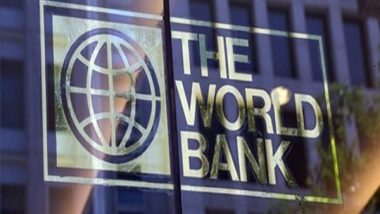New Delhi [India], November 3 (ANI): The commodity prices in the international markets will decrease by 5 percent in 2025 and 2 percent in 2026, following a 3 percent decline this year, reaching their lowest levels since 2020, the World Bank Group said in its October edition of Commodity Market Outlook.
A decline in oil prices will support the downward trend of commodity prices, while increases in natural gas prices and stable outlooks for metals and agricultural commodities will temper the overall decline, the global entity said.
It added that the Brent crude oil prices are expected to average USD 80 per barrel in 2024 before dropping to USD 73 in 2025 and USD 72 in 2026.
The report adds that annual average oil prices are expected todecline for four consecutive years through to 2026, from their 2022 high and it will settle slightly above their 2021 level.
The projected price drop reflects a combination of factors, including slower global oil demand--especially from China--diversified oil production and increased supply capacity within OPEC+.
However, it highlighted that the possibility of escalating war in the Middle East will be a short-term risk that could push prices higher and impact other commodity markets.
As per the report, the energy sector affects the price conditions in the short term, and global energy markets will be closely reacting to geopolitical tensions.
In October 2023 and April 2024, the oil prices surged to above USD 90 per barrel following the regional conflicts. Although these spikes were often temporary, they stabilised as supply concerns eased.
In metals markets, the outlook remains relatively stable. "The metals price index is projected to drift slightly lower over 2025-26. After rising 6 percent this year (y/y), base metal prices are forecast to hold steady next year before softening by 3 percent in 2026," the report added.
Base metals such as aluminium and copper have seen resilience in their prices due to a robust demand from the ongoing energy transition, though prices will see downward adjustments after the stability in global industrial growth.
Meanwhile, gold prices have risen significantly throughout 2024, fuelled by heightened geopolitical risks and strong demand from central banks in emerging economies.
The agriculture commodity prices have seen declines after many regions witnessed favourable weather, which supported robust crop yields. Food prices overall are expected to ease further, which could help improve affordability in emerging markets, the report added.
In outlook, it said that the commodity prices may see both upside and downside risks. Rising global economic stimulus, especially from China and adverse weather conditions due to climate change could raise prices, while a weakening in global industrial activity could temper demand. With the organisation of the Petroleum Exporting Countries Plus (OPEC+) potentially unwinding production cuts and non-OPEC oil producers like the United States and Brazil ramping up output, supply conditions may remain ample, keeping commodity prices in check through 2026. (ANI)
(This is an unedited and auto-generated story from Syndicated News feed, LatestLY Staff may not have modified or edited the content body)













 Quickly
Quickly

















